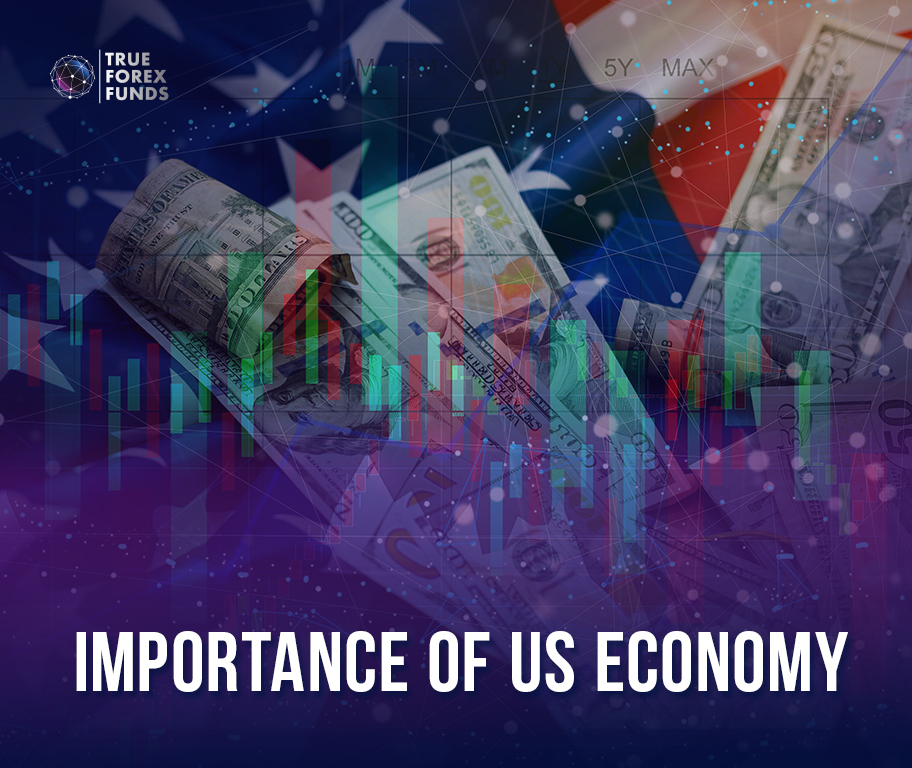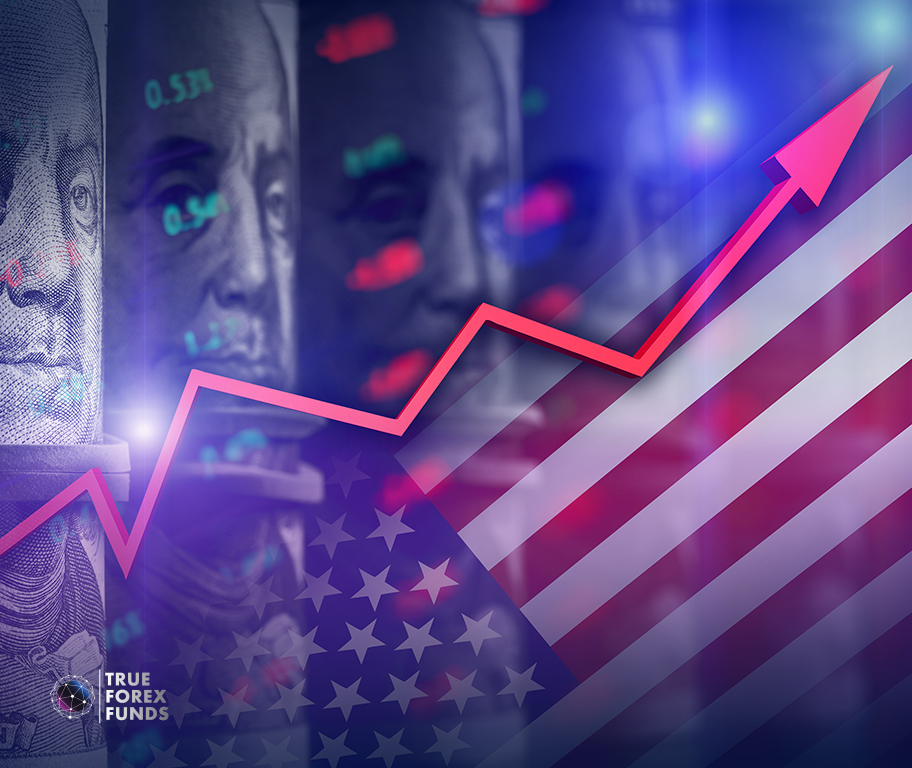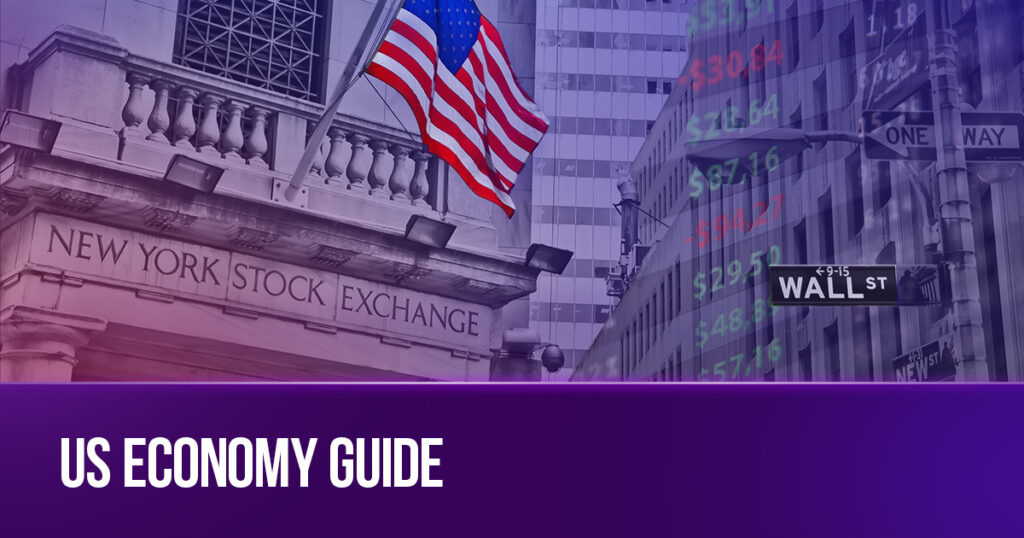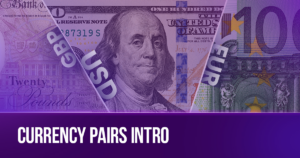Aside from covering trading basics, developing a strong understanding of specific markets is crucial for forex experts. The US economy, as a major player, significantly influences forex trading due to the value of the US dollar. Therefore, it’s essential to comprehend why the US economy matters and its impacts. Know how to assess its health to predict fluctuations in the US dollar’s value.
Disclaimer: This article is intended for informational purposes only and should not be construed as financial advice
The Significance of US Economy
Undoubtedly, the US economy has long been a global economic powerhouse, exerting a significant influence on the entire world economy. Therefore, in forex trading, the value of the US Dollar is of utmost importance, as it serves as the global reserve currency.
How strong is the US Economy today?
Contrary to the gloomy predictions, the US economy stands remarkably robust, as indicated by expert analyses. The Bureau of Labor Statistics reveals a consistently low unemployment rate of 3.5% over three consecutive months. It coupled with an impressive addition of 339,000 jobs in the month of May alone. Additionally, data from the World Bank underscores the United States’ economic prowess. US ranks the world’s largest economy with a nominal GDP of $25.46 trillion in the year 2022.
Global Impacts from the US Economy
The strength of the US economy extends beyond its borders. The US makes up nearly 25% of the world’s total economic output. Thus, it contributes around 20% of global foreign direct investment and over 30% of the total value of global stock markets in 2016. Furthermore, it holds the position of being the top export market for approximately 20% of nations across the globe.

The Value of the US Dollar: Global Reserve Currency
The US dollar is the most commonly held currency, constituting 59% of global forex reserves as per IMF. Its high liquidity enables seamless conversion to other currencies without substantial loss. Thus, monitoring U.S. economic shifts is crucial for forex traders due to their potent influence on the dollar and global markets.
5 Factors Impacting the US Economy & Dollar Values
To grasp the interplay between the US economy and forex markets, it is crucial to explore the five pivotal factors that shape its trajectory and influence dollar values.
Global Recession and Growth
In the recent integrated world, economies are closely linked. In other words, A recession in one place can send ripples across borders, even reaching the US. A prime illustration is the ongoing global recession due to the pandemic, impacting economies globally, including the US. Hence, US government has taken action by adjusting debt limits, monetary and fiscal policies to provide crucial support and ease the impact of the recession.
The Current State of the US Economy
The US economy holds a pivotal position globally, being advanced and diversified. Its condition influences how the dollar is perceived by investors. Over recent years, the US economy has undergone significant fluctuations and challenges. Key factors like unemployment, job creation, inflation, GDP growth, and trade policies shape the dollar value.
Monetary and Fiscal Policies
The U.S. Federal Reserve shapes monetary policy in the nation, controlling interest rates and money supply for stable prices and sustainable growth. Indeed, policymakers in the Federal Open Market Committee (FOMC) handle this responsibility, impacting forex markets via interest rate changes and open market operations. On the other hand, fiscal policy, influenced by Congress and the President, affects the economy and forex rates through tax, spending, and other measures. Forex traders should monitor both monetary and fiscal policies for their profound influence on the U.S. economy and currency markets.
Global Trade and Capital Flows
Trade imbalances can play a significant role in shaping currency values. Specifically, a trade deficit has the potential to weaken the dollar by increasing its supply. Moreover, the movement of investments between countries, known as capital flows, can also sway the demand for the dollar, ultimately impacting its value in the foreign exchange market.
Interest Rates and Rumors
Interest rates play a vital role in making the US dollar attractive. When rates are higher, foreign capital flows in, increasing demand for the dollar. Keep an eye on the interest rate grapevine, the informal term for speculation around the Federal Reserve’s moves. If rumours suggest a rate hike, the dollar’s price tends to rise. If there is talk of a rate cut, the dollar’s value often drops.This connection between rates, rumours, and the dollar value needs notice from the forex trader.
Trade Smarter, Not Harder
Take action and register with True Forex Funds to gain insights into the US economy’s impact on forex trading, giving you an edge in the market.
5 Reports to See How the US Economy is Doing

The official reports can help you gauge the US economic health and what is happening:
Balance of Trade
The Bureau of Economic Analysis (BEA) greatly influences the US economy and currency rates. The reports shape government policies, private investments, and global stocks. The trade balance report directly impacts the value of dollars and forex traders. A trade surplus (more export than import) strengthens the USD as foreign buyers require it for American goods. In contrast, a trade deficit (more import than export) weakens the USD due to increased demand for foreign currencies.
GDP or GDP per capita
The GDP reports – another key BEA output – reveal how much the US produces, and provides insights into its economic size and direction each year. Central banks consider GDP among other factors when making monetary policy. When GDP grows well, the dollar often gets stronger, showing a strong economy and attracting foreign investment. On the flip side, if GDP growth is weak, the dollar can lose value as confidence drops. In response, slow growth might lead to economic boosts, while rapid growth might lead to inflation signals. Thus, forex traders pay close attention to GDP data for smarter trading choices.
CPI
The CPI report is vital for forex traders, offering insights into inflation’s impact. Inflation guides central bank decisions, affecting interest rates and the US dollar’s value. Higher CPI may signal rate hikes, strengthening the currency; lower CPI can lead to expansionary measures, weakening it. You can check the monthly CPI reports provided by the Bureau of Labor Statistics (BLS) to see how the US economy is doing on inflation.
Retail Sales
The Retail Sales report, released monthly by the U.S. Census Bureau, is a big deal for forex traders and the US dollar. This metric reflects consumer demand for finished goods, serving as a crucial economic indicator for growth, inflation, and overall economic health. If sales go up, it’s usually good news for the economy and can make the dollar stronger. But if sales go down, it might mean the economy is not doing so well, which can affect prices and make the dollar weaker.
Non-farm Payrolls
The Nonfarm Payroll (NFP) report, a vital tool for forex traders, is released monthly by the Bureau of Labor Statistics. It unveils employment trends in the US economy, focusing on private and government sector jobs while excluding farm and household workers. This report exerts substantial influence on the financial market, serving as a mirror for economic growth, inflation, housing starts, and gross domestic product, all instrumental in shaping currency movements.
Conclusion
As one of the most popular currencies, the US dollar holds a central role in international trade, finance, and investment. Given its prominence, forex traders must understand the operation of the US economy and its indicators. They directly impact the US dollar value and, consequently, currency markets worldwide. Therefore, seize the opportunity to elevate your forex trading prowess by registering with True Forex Funds – your gateway to harnessing the power of the US economy for informed and successful trading.
Navigate Your Success with True Forex Funds today!
Get fundedFAQs
The US has a mixed economy, which means it’s a mix of two things: businesses and people own stuff and make choices, like in a store, but the government also has rules and helps people when they need it. So, companies can do their own things, but the government also makes sure things are fair and helps out when necessary.
Aside from exploring trading basics, having a strong grasp of specific markets is vital for forex experts to make informed trading decisions and predictions.
The US economy plays a pivotal role in shaping currency values and global market dynamics, making it essential for forex traders and prop firms to monitor and understand.
Despite concerns, expert analyses indicate that the US economy remains robust, evident by low unemployment rates and job additions. Latest data from the Bureau of Labor Statistics and the World Bank support this assessment.
The US economy’s strength extends globally, influencing economic output, foreign investment, and stock markets. It also serves as a significant export market for many nations.
The US dollar is the most commonly held global reserve currency, making its value and fluctuations vital for forex traders due to their impact on global markets. Additionally, due to its widespread acceptance and stability, many global transactions are denominated in US dollars.
Five key factors, including global recession and growth, the current state of the US economy, monetary and fiscal policies, global trade and capital flows, and interest rates, play a crucial role in shaping the trajectory of the US economy and its currency.
Reports such as Balance of Trade, GDP, CPI (Consumer Price Index), Retail Sales, and Non-farm Payrolls provide insights into the US economic health and impact currency values, guiding forex trading decisions.
Inflation, measured by the CPI, guides central bank decisions and influences interest rates, affecting the US dollar’s value and subsequently impacting forex trading.




